Despite the state of the world today, being a prepper is still seen as unusual. It seems that most people just don’t want to know what could go wrong – either that or they still expect someone else to take care of them when it does. Either way, they think it’s odd that some of us are ready to look out for ourselves.
What’s really odd is that just a couple of generations ago it was the other way around. Most people were much more self-reliant, and if you weren’t ready to cope with a crisis your neighbors would have thought you were the unusual one. That self-reliant spirit has been pretty useful in US history, most spectacularly during the Great Depression.
The Depression began in 1929 and had a huge impact on life for most Americans. It took WWII and the move to a war economy to shake off its last effects; for twelve years hardships and poverty affected millions of people. Those people, mostly, just got on with it as well as they could. They fell back on their own resources, pulled together and slowly rebuilt the economy and society.
When I was a child I heard stories about the Depression from my grandfather. In 1929 he was a young man living on a farm, and the economic collapse was a real threat. Luckily, he like most of his generation, had the right mindset and skills to get through the disaster. In fact, he was someone that any of us would recognize as a fellow prepper. Here are just a few of the ways he was ready when the Depression hit.
Look for Livestock
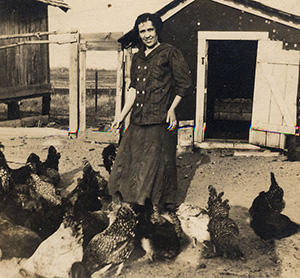 Most people now have, at best, a pretty vague idea of how food gets from the farm to a Styrofoam tray in a chiller cabinet. I knew different growing up, and I learned that from my grandparents. There were always chickens in the yard and at least one hog in the sty. The chickens were mostly for eggs, but on special occasions a fat young bird would end up on the table. The rest were egg producers, but when they stopped laying they’d head for the pot and be turned into tasty soups and stews. Granddad also traded surplus eggs (and hens) with the neighbors.
Most people now have, at best, a pretty vague idea of how food gets from the farm to a Styrofoam tray in a chiller cabinet. I knew different growing up, and I learned that from my grandparents. There were always chickens in the yard and at least one hog in the sty. The chickens were mostly for eggs, but on special occasions a fat young bird would end up on the table. The rest were egg producers, but when they stopped laying they’d head for the pot and be turned into tasty soups and stews. Granddad also traded surplus eggs (and hens) with the neighbors.
Chickens were cheap and easy to keep; they’d forage around the yard for a lot of what they ate, and as for the rest there’s a reason we call small sums of money “chicken feed”. A pig was a bit more expensive, because a chunky hog will eat a lot more than the leftovers generated by a frugal family. It was still a good investment, though, because when the hog was slaughtered in fall it would yield enough ham, bacon and sausage to last through the winter.
Do It Yourself
Nowadays, when something goes wrong around the house, most of us search for a local business that can fix it for us. The sink’s blocked? Call a plumber. The car’s broken down? Call the garage. Run out of bedrooms? Call a builder. During the Depression that wasn’t an option for most people, because they just couldn’t afford it. Luckily most people had at least some of the skills they needed to fix or make things themselves – and if they didn’t have a particular skill, chances were they had a friend or neighbor that did.
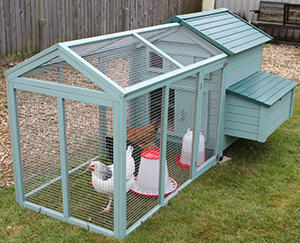 Look on Amazon and you can get yourself a good-sized chicken coop for just $299.99. What did people do before Amazon existed, though? Well, they built a chicken coop themselves. One good thing about chicken coops is that pretty much anyone can knock one together out of the materials they have around. I’ve seen coops made from old doors, scavenged boards and car parts. Granddad was a pretty fair bricklayer though, so he built one from glazed bricks salvaged from an old factory. It wasn’t just weatherproof; it was easy to keep clean with a hose. In fact, it was so good he was asked to build two more for neighbors. That’s how it worked; skills were a commodity that could be traded, just like surplus eggs.
Look on Amazon and you can get yourself a good-sized chicken coop for just $299.99. What did people do before Amazon existed, though? Well, they built a chicken coop themselves. One good thing about chicken coops is that pretty much anyone can knock one together out of the materials they have around. I’ve seen coops made from old doors, scavenged boards and car parts. Granddad was a pretty fair bricklayer though, so he built one from glazed bricks salvaged from an old factory. It wasn’t just weatherproof; it was easy to keep clean with a hose. In fact, it was so good he was asked to build two more for neighbors. That’s how it worked; skills were a commodity that could be traded, just like surplus eggs.
Related: How to Keep Eggs Fresh for a Year with Isinglass
Help Each Other
For a lot of people now – probably the majority – our neighbors are strangers. A couple of generations ago it was very different. Neighbors knew each other and helped each other out. If you wanted to go out you could leave the children with the neighbors instead of paying a babysitter. If you were cooking and realized you had no salt left you’d ask the neighbors. And if you had tools or skills your neighbors needed, you’d volunteer them.
My great-grandfather had a very useful item that was much in demand – a steam engine. Back then most farms still relied on animals and muscles for power, but a steam engine could be hitched to anything that could take power from a belt. Steam engines were already old technology at the time, but they still weren’t cheap; few farmers could afford powered machinery and the engine to power it. In fact, great-granddad didn’t have a thresher for his wheat, but a neighbor would let him use theirs in exchange for the use of the engine.
Don’t Bite Off More Than You Can Chew
The USA is awash in credit. It’s incredibly easy to borrow money, whether that’s a mortgage, a bank loan or a credit card – how many mailers do you get every week telling you that you’ve been pre-approved for another card? In our instant gratification culture, credit is a quick way to get all the things you want but can’t afford.
The trouble is, easy credit is a disaster on many levels. When you get that shiny new pre-approved card, it’s tempting to go on a shopping spree with it – and easy to forget the ruinous interest rate charged on everything you spend. Debt is easy to take on but very, very hard to get rid of again. If you find yourself using one card to pay off another one you’re in a lot of trouble. When millions of people get mortgages they can’t pay off, the whole global economy is in a lot of trouble; that’s what happened in 2008.

For my grandfather’s generation, being in debt was nothing to be proud of. If you wanted something you either saved money and waited until you could afford it, or you did without. Defaulting on a debt was a shameful thing to do. The only exception, usually, was for a mortgage – and paying the monthly check was a solemn obligation.
That old anti-debt social code might seem restrictive and judgmental to us today, but it meant people were a lot better prepared for hard times. When money was short most people had one debt to worry about; their mortgage. Sure, they might lose their home if they couldn’t keep up the monthly payments on it – but they weren’t going to lose their home because they couldn’t keep up the monthly payments on their car, boat, snowmobile, home theater system and the money they borrowed to pay for a vacation.
Most importantly, whatever people had when they went into the Great Depression was theirs. No finance company had their hand wrapped round it just waiting for the chance to tighten their grip. Avoid debt whenever you can. Any time you’re tempted to borrow money for something ask yourself the all-important question; is this something you need, or something you want? And if it’s just something you want, will it really kill you to wait a few months until you can buy it for cash? Plus here’s something else to consider: If you can’t afford to put a few dollars aside every week to save up for it, you sure as hell can’t afford the repayments on a loan.
Related: 10 Great Depression Era Strategies For Saving Money
Look For Solutions, Not Excuses
It seems like everyone has an excuse for failure these days. Whether their parents made them wear a dress just because they were a girl, or their distant ancestors had a bad time way back before the Civil War, people’s troubles are always someone else’s fault.
In my granddad’s time people didn’t waste their time making excuses, because nobody cared. If you had a problem you were expected to find a solution. Put the effort into doing that and your friends and neighbors would pitch in to lend you a hand – but if you just sat around complaining about your bad luck, you were on your own. People had their own troubles to deal with, and they didn’t have time to help people who wouldn’t help themselves.
You may also like:
 40 Bizarre Home Remedies Our Grandparents Taught Us That Actually Work
40 Bizarre Home Remedies Our Grandparents Taught Us That Actually Work
Secret Healing Ways That Were Lost Over 100 Years Ago (Video)
11 Food Storage Lessons Learned from WWI

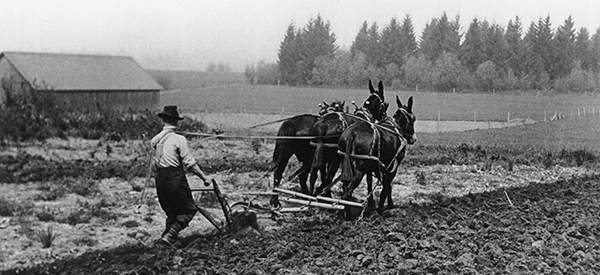





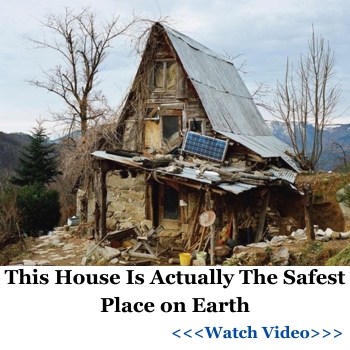

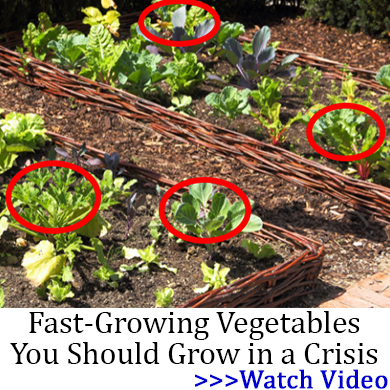





Interesting article. Folks should read this twice, to catch the parts about responsibility and no excuses. I get sick when I hear expressions like ; ” it’s government money”, or “its Obama money” or “I’ll file for bankruptcy and start over…” . Also the point about having a trade skill to barter with, is an important one.
Seems most of these articles focus too much on the SHTF scenario, this one can be related to everyday life and the attitude needed to succeed. …… Good Read.
I believe they stopped teaching ‘personal responsibility’ years ago.
Who are “they?” Parents should be the ones teaching their children personal responsibility. If we all taught our children that, the world would be a much better place.
Personally I would love to bring the mother’s of all the senators and state representatives to their meetings and just let them tell them what they think about what they are doing. Some of them might just think twice. And I’m sure some of them just wouldn’t care.
Personal responsibility is just that-personal. Not the government or your neighbor’s problem-YOURS!
Exactly…parents are failing hugely!!
I taught public school for a few years until I realized I was part of the problem.
I couldn’t survive in public school today.
Yes they did stop teaching and aloud public schools to do the job for them. Big no-no schools teaching affected society’s morality’s so they voided it little by little today’s kids have none thus it’s Ok to be self centered and other things. Hell they don’t even teach about a man giving his word and why a woman can’t giver her word all she can do is make a promise, But for those of you out there that don’t know this I’ll explain old history here. When a man gives his word he puts the family name on the line past present and future. Woman can’t cause when she marries her name changes thus she can’t give her word. Funny other than some old timers knowing this, This isn’t taught anymore most people I run across never even heard of it. Wonder if that’s one reason most people have turned into scum.
I thought this was a good article.
The last paragraph raises important points about mindset. The preceding paragraph doesn’t seem useful, and is worded in a way that may do more harm than good. I think the author took a detour from the topic to stir up subjective or opinionated digs that could be hurtful, or at least counterproductive to a goal of engaging people in the spirit of preparedness. What does a dress have to do with preparedness? Are we talking about slavery too?
Just my $.02. Good points about the cost and value of livestock, and how skills may be more valuable than stuff in hard times.
The author was just trying to clarify his point that people today want to blame everything and everyone else for their own problems rather than take the responsibility themselves. They have a victim mentality. That same mindset carries over to being prepared, or not prepared, for anything that may come their way. Those with that victim mentality will be just that, a victim, when something happens. They will be the unprepared ones for whatever reasons they can conjure up, and it will always be someone else’s fault, not theirs.
Thanks, Homesteader, for your civil and considerate response. It seems courtesy is in short supply in the world of Internet discussion, I don’t know why I am surprised. 🙂
I still don’t see how a girl being made to wear a dress contributes to a victim mentality. I thought that was simply a poor example to use. Unless the author was trying to say that a woman who was raised wearing a dress as a girl was not exposed to physical labor, and now remains unwilling to be useful, if so I could see how that would be related, it just didn’t come across in the way it was written, at least how I read it.
My larger concern is that the potentially innocuous line about the Civil War could also be a comment on the notion of reparations to black people, who might be in better socioeconomic standing were their ancestors not subjected to slavery. That may not have even crossed the author’s mind, but it crossed mine.
Have a good day, and kudos to everyone like us, who read websites like this and works to make themselves and others a little more self-reliant.
I try to be civil to everyone on here. No need making a ruckus, however, sometimes I will rock the boat and make of few waves. OK, I’m done with the cliches!
On the dress issue – if a girl prefers jeans or shorts to dresses, but is made to wear dresses all the time, it could cause friction between her and her parents. In turn, if the girl has problems of any kind in later years, she could try to use that friction as the source of her current problems. It’s twisted, I know, but people who think like this seem to have very convoluted way of thinking. The few times I’ve tried to talk to any of them, my head was spinning from all the convolutions.
The biggest problem I see with the Civil War issue is that people today truly do not understand what it was all about. Schools no longer teach history as it once was taught. Now it’s more of a revisionist history using only what fits the narrative of whoever think they are in charge. Slavery in the South was just one issue on the table. The westward expansion and whether or not the new states or territories should be free or slave was another heated issue. Even Lincoln’s election was a factor. There were simply more voters in the North so they got who they wanted, whereas, the vast majority of the people in the South could not even vote. The South didn’t want Lincoln as President so they seceded. I know it’s a very simplified version of events, and there were more issues but there’s no need to write a novel here.
I hope this gives you another view of those statements in the article.
Your interpretation of the pre Civil War situation was the same as mine. However, I did not read into it as personal problem.
Just an example of how some black people use it as an excuses of why they live in a bad situation. The reality of it is that, how and/or what their ancestors lived thru and endured has no direct way on how they chose to live today. It is used as a ruse to be the forever victim with out reparations.
Everybody in this country has the ability to further themselves and make the next generation even better than what they endured. Slaves endured the hardships and persevered because there was hope that the next generation would have a better live.
The end game here is that; carrying on the victim attitude will get you nowhere. It only perpetuates that you are a loser because of a bad situation that happened generations ago.
The victim attitude is a reason why so many people fail today. Also an attitude that you are not willing to step up and make life better for your offspring.
I believe the next to the last paragraph is a lead into the last paragraph. It seems today very few people are willing to accept responsibility for their actions. While one may disapprove of the actions of G. Gordon Liddy and Woody Hayes, they were public figures who said they had done wrong and accepted responsibility for their actions. The actress who was sentenced and released from federal prison accepted responsibility for her actions. Rare cases of a public figure stepping forward and saying that they are the one responsible for their actions.
On the other hand, the legislator from the PDRK who was involved sexually with one of her staff in contravention of recently adopted rules seems to blame everyone but herself. It was she who posted nude pictures on the internet. I don’t know who released them but she is a public figure and as such has put herself in the limelight. If that light shines on warts and blemishes, being in the limelight is her own doing. If she wanted a private life, perhaps she should have remained in private life and refrained from posting nude pictures of herself on the internet which is probably the most public thing you can do in life.
As Barretto used to say, “You do the crime, you do the time.”
We have a huge problem that my grand dad did not have. That is zoning laws. I live in a RURAL town, which will not allow even three hens, or rabbits or bee hives. Are we crowded? not really 1/3 acre is not that close together. My grandfather had a cow in a not rural town. My younger uncles, just a few years older than me, would take the cow to the town’s pasture in the morning after milking and bring it back in the evening to do the evening milking. Try doing that now. Yes, he had his pig. I had to get permission to have a garden 12 years ago, now you can’t. Lucky for me I was “grandfathered in”. (That’s a legal term that means I had permission so they can’t revoke it now. Yes, I’m a retired attorney, otherwise I’m sure it would not have happened.) I was also given permission to have a wildlife habitat then, so I can have my own little forest with all kinds of edibles, including native fruit trees, in the middle of a town of lawns. There are three in town, between us three owners, we add up to over 200 years old. I’m sure the town is waiting for us to die. (I’m fooling them, I’m dropping dead when I am 89.) By the way, most of what I learned was from my grand father, by parents were too modern. I had to stand on a stool to make cheese, he didn’t care if I burned myself. I’m a back to the earth, from way, way back. Yes, we are still alive. As to Kevatasu, what? What does slavery and a dress have to do with each other? Hint, genius, if you don’t know how to make a dress, you don’t know how to make pants, and if the world collapses, you would have to walk around naked. Nope, I don’t mind knowing how to make a dress. Duh! I have debt because my insurance company made me replace the roof of my house and my art studio or lose the insurance. Hint, they are not the most expensive one around. Try being told that you need to spend over $20,000 in something that the roofing company said, “it’s in pretty good condition”. Problem two, all the rules and regulations meant to force us to spend money on unnecessary things.
CarmenO, perhaps reread that paragraph? There is no mention of the valuable skill of making clothes.
PS, just because I am not an attorney doesn’t necessarily make me a genius, but I appreciate the compliment I’m sure you intended. 🙂
Kevatasu,
The paragraph isn’t saying that wearing/making a dress is a valuable skill, and no, being a slave does not add value either. What the paragraph IS saying is, if you haven’t grasped reality enough to realize that you are responsible for your own actions, successes, and failures, then at least get a clue and quit blaming others.
When are you going to get your clue??
Let me quote you “What does a dress have to do with preparedness? Are we talking about slavery too?” I don’t have to be a retired attorney, to be able to READ. I would suggest you get checked for your memory issues. No, not intended. I was just answering your question. Plus, my point is that had I not been one, the city would have just revoked their permission, because most people have never heard of a “grandfather” clause. Hint: valuable information for others. If you need to explain what your paragraph is saying, then you are accepting the fact that what you said made zero sense. Is English your second language? I don’t blame others, like I mentioned, I’ve been at this longer than you have been alive. Blaming someone like you, would be the same as blaming a 5 year old. Did YOU get the clue?
I am certain “back in the day” they did not have running water or a pump or hose to clean out the “coop” !!!
Maybe they used the steam engines hose…..
Water pumps aren’t exactly new technology; as far as I can find out they date back to ancient Greece, and maybe even earlier. My own grandfather used to rig a hose to a hand pump; if whoever’s pumping can get a good rhythm going, they can keep the pressure in the hose high enough to give a pretty steady flow from the nozzle. It’s hard work, but it gets the job done. As preppers we need to get away from the idea that “back in the day” things weren’t possible without modern luxuries like running water. Yes, you can pump water through a hose. Yes, you can clean out a chicken coop with it.
I am sorry, but I re-read the paragraph about dress’s and I just do not get the problem. I was raised to ware a dress until I was a teen then had to argue to get my first pair of pants. And yes I knew how to make a dress by hand before I was allowed to touch the sewing machine. I think someone is just looking for a reason to argue.
dCarmenO, Don’t get me started on insurance companies! They are legalized extortion agencies! Zoning laws and homeowner covenants restrict the property owner.BTW, you don’t OWN that property, even if you paid the mortgage in full. Don’t pay the taxes and then see who owns it! Land grants or land patents and alloidial titles allow the owner to reclaim his property and really own it. And most Americans can’t or won’t prepare. That’s why when they come up the hill to my place after the SHTF, they better be wearing bulletproof armor or waving a white flag!
Rural town won’t let you live rural lifestyle? Run for town council and get a feww lile minded friends to do the same. Take control of your town.
The last thing I want is to waste my time in my town council. I already have my little forest and it is almost to the point that no one will be able to see inside of my backyard. You can bet that I am checking plans for the chicken coop. A couple of years ago, we voted out all but one council member, including the town mayor, due to ridiculous laws. No garage sale signs allowed, had to use side of cars for the signs. Which resulted in many minivans and trucks obstructing the streets. LOL NOT KIDDING. I got the current mayor fired from his full time job, I am NOT going anywhere near him. Too many nuts here.
I know that one. I live in a large village. they outlawed owning poultry! The village is ten miles from the closest town. It’s ranch country. Nor can you have a cow in town, but laws, horses? Plenty of them in the well-to-do ‘hoods. Man, when in New York, you can hear chickens in high rises in Manhattan and the Bronx alike. Goats are more popular as ‘pets’ than dogs or cats. A lot of people are gardening with hydroponics or aquaponics. What does the very cosmopolitan NYC have over us? People would scream bloody murder if they had to give up their ‘pets’. Carry a piece to keep the peace. niio
My Grandfather had polio as a child, but worked through it to the point he could walk with a cane most of his life. He went to med school, became a small town Doctor, raised a family during the Depression. When I was a young Hippie in the 60’s I thought he was hard and unfeeling and decided not to like him and never got to know him as an adult. At 80 he finally had a stroke that put him in a wheelchair, but he rolled that chair out to his vegetable garden every day, tipped over, and spent a couple hours gardening just dragging himself along on his butt. My Grandma had to sew leather to the seat of his pants. Wish I’d been friends with that old S.O.B. now that I know better.
Beau 1954: Our lives are filled with coulda, woulda, shoulda. I am sorry for you that you missed an opportunity to get to know you Grandfather. He sounds like the kind of guy you would have learned a lot from.
I think we often wish we had been closer to our grandparents or great grandparents but only realize it too late. There are so many things I wish I had asked them.
Few take responsibility for their error and omissions these days. While Woody Hays was, perhaps, not so admirable in his pursuit of winning, when he screwed up, he was man enough to admit that he did wrong and accepted his punishment like a man without whining and sniveling. He may have clay feet like a lot of our heroes, but I admire him for his manliness in accepting his fate.
G. Gordon Liddy is another shining example. He did wrong and there was no sniveling and whining. No plea deals. He did the crime and he did the time. How many law and order stalwarts in the Nixon administration, who were frequently quoted lambasting lenient courts quickly folded and took plea deals? My recollection is every one of them except Liddy.
You don’t have to admire the crime, but in a world of plea deals and blame shifting, someone who stands up and says, “I did wrong. I’ll accept the punishment I am due,” in my book at least commands respect.
The drunk driver, who speeding through a construction zone while drunk and colliding with the construction worker, blaming the construction company and the public entity for not more clearly marking the construction zone is all too common an occurrence these days.
Recently in a transaction in a local store the clerk didn’t charge me enough. I reminded him that he hadn’t charged the correct price. Had he overcharged me, I would have reminded him that he had charged me too much.
My grandson, much to my dismay, chided me for telling the clerk that he had undercharged me. He said he would never do that. If the clerk made a mistake in his favor, it was okay to just walk away and not say anything. I tried to point out the fallacy in his thinking, but I am afraid I failed. He remained unconvinced that if you expect a remedy when the clerk makes a mistake against you, it is only proper and fitting that you reciprocate when the clerk makes a mistake in the other direction. Morality – 0; expediency – 1. Somewhere, somehow, the morality I thought I taught to my children didn’t make it to the second generation. At least my parents didn’t fail to pass the lesson to me. I don’t know if I failed or if my children failed.
It bothers me that his morality is situational and not more closely hewed. I just hope that my lecture falls on fertile ground and grows and doesn’t wither and die.
It was my grandmother that was the survivor, she hunted and trapped to keep meat on the table during the depression, Dirt framers during the dust bowl and much of the crops failed.
I am an Engineer and the only time I got in trouble with my super was when I told the customer that it was my fault. I take responsibility for my work, The boss told me to never ever tell the customer that I was wrong. Customer- other part of company.
Our kids and grandkids are too often products of the mores of their school teachers. Situational ethics will lead to robbery and murder in a real SHTF situation. I was raised to appreciate Hard Work, Honesty at all costs, and Ingenuity in creating things or solutions to problems.
The neighbor’s teen grandkids occasionally need some cash. They come asking me if I have something they can do to earn money. They have picked up trash wind was blowing in and scattering about, they helped cover a ditch from laying a new electrical connection. I probably over pay if they really do a good job. Lest for a less satisfying job. They are on the lazy side while their grandpa is an extraordinary hard worker. I’m glad they are seeing work as a way to earn money and taking the initiative to ask.
I raised money as a little kid by selling wildflower bouquets, mistletoe bunches at Christmas and homemade candy, pies, cookies, and pretty cakes. My kids made and sold cookies to neighbors. I helped support the family by selling 60 pies a week. With a houseful of yours, mine and ours kids plus, a single mother with 3 children who’s home burned and her new baby was just 3.weeks old…it was a lot of work but necessary. She’s still a daughter of my heart after several decades.
Life is about creativity and work. My parents both lived through the depression as young adults. They and grandparents taught me old time values and skills I’m grateful to know today. I budget close in good times and hard times. This week I spent a saved lump sum and have gone off grid solar powered. Its my investment in the future. I’ll do it again soon and install a small array for power to three sheds and my second well on the property.
I’m already gathering bits and pieces toward that project. I aim to take each home here off grid as I’m able.
Life isn’t always easy but it can be filled with joy and good memories and strong relationships. Mostly it’s about choices and being willing to work.
We still live like Fergus’ grandfather. Keep chickens, sell excess eggs to offset costs, keep a feeder pig or two per year, keep a few cows to put one in the freezer a year….all slaughter and butchering done here. Garden extensively, including a 3 season hoop house. Heat with wood. All structures on the place built by us with wood cut off the place and made into lumber on our sawmill.
No my grandparents were not preppers it was just their way of life. Walmart’s, convenient stores and on line shopping just were not options. Collecting eggs, milking cows, slaughtering pigs, and tossing some lime in the out house was ever day living. Do it or do without
Exactly! And the point is that the things we do as preppers – and if we’re honest, like the article says, a lot of people think the things we do are pretty strange – were a way of life just a couple of generations ago. It’s amazing and kind of frightening how fast people have forgotten all the things their grandparents did. When I was putting together my “Lost Ways” books it kept hitting me how routine most of those skills were inside living memory.
I only recently learned that my grandfather made caskets for his dead neighbors. He would go frome one to the next collecting change till he had ten dollars for the wood and nails and then build the casket free of charge. I am so proud of that man, wish I had known him better.
Good read. On the credit topic, it should only be used to put you on the credit papers, but NEVER to actually pay for something you can’t actually afford. What I do is: I have 1 credit card. I spend no more than $50 on it a month, which is money I already have and can easily pay it off. On the beginning of the month, I pay it off. This keeps my credit score in the GOOD range of 730 (my credit card is only 2 years old, credit score grows as the account gets older). This way, if you ever need to present a credit check to someone, you’ll always be in good standing.
I use it every chance I get; get home, put that money spent in an envelope.
I use those bonus points to buy a Lowe’s gift card.
It takes a while, but why not get a $25 gift certificate every now and then?
A good article will bring old memories to mind; my Grand Dad and Mother were farmers. I was a little boy that would stay on their farm during the summer for as long as I wanted.
They had a dairy herd. Milked morning and night. I remember the milk truck would rumble up the drive and back up to the glazed brick milk house every day and take the milk out of the big coolers.
They raised chickens too. A lot of them! Some for eggs, some for eating. Grandma would use everything from that chicken except the cluck! We had chicken every week. Eggs every day. And at every meal, there would be a TALL stack of bread at the center of the kitchen table with a big bowl of home made butter. Grandma always told me if I was still hungry after I cleaned my plate, I could eat all the butter bread I wanted. Home made ice cream too. The best tasting ice cream on the planet! Oh, it was so good!
They had two Farmall H tractors and worked the land with them. I remember the corn and wheat, but I don’t remember if they raised soybeans. Probably did.
They heated with wood. The pot belly stove was a welcome friend in the winter.
They had a 1947 chevy, and drove it until the wheels fell off. They were frugal. Their 120 acre farm provided them a living, and is where my dad grew up.
I once asked my dad what it was like during the depression, and he simply said, “There wasn’t any money, but we always had plenty to eat.” … And that brings another memory to mind; the strawberry patch that to a child’s mind stretched on forever.
Great memories!
Thanks for the Post!
I’m 55. My dad would be 108 if he had lived that long. He grew up through the depression and fought in WWII. He was from a farming family who also ran a sawmill business. He taught me everything about being frugal, prepared and how to live the life of a “man of his word.” I’m lucky to have been his son. And my mom also grew up thru the depression and she would be 90 if she had lived until today. She also taught me a lot especially about gardening and canning. So I just think and live a life that is normal to me and don’t consider myself a “prepper”. I’m just living how one should live…a life of personal responsibility.